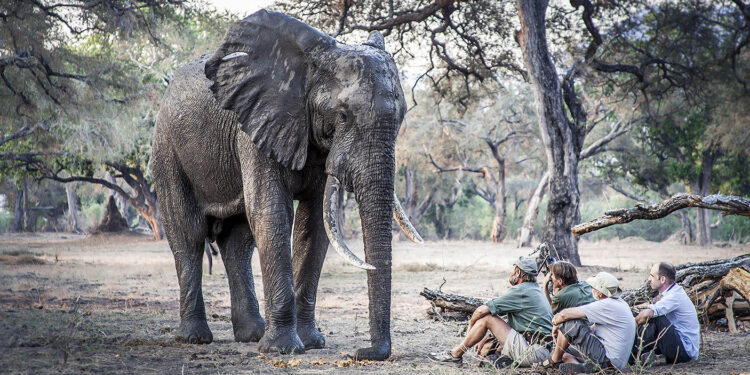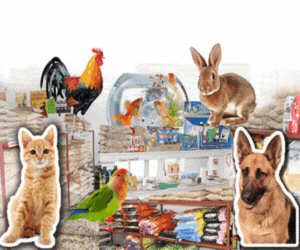“The West has its cathedrals. The East has its temples. Africa has its wilderness.” — Scott Ramsay
In recognition of International Animal Rights Day on 10 December, acclaimed photographer and conservationist Scott Ramsay releases his new book, Spirit of Africa, offering a visual tribute to the continent’s wild places. Through his lens, Ramsay not only celebrates Africa’s breathtaking landscapes but also underscores the vital importance of protecting the rights of the animals that inhabit them.
As we reflect on the rights of all living beings, Spirit of Africa is a poignant reminder that the animals of this planet have as much right to exist and thrive as we do. Their wilderness is not just a source of awe and beauty but a sanctuary that must be preserved for future generations. This book is both a celebration and a call to action, inviting readers to connect with Africa’s wild spaces and advocate for the protection of the animals who call them home.
Produced by award-winning publishing house Quivertree, this thought-provoking new release features more than 150 large-scale images of the landscapes, wildlife and indigenous tribes of Africa’s most iconic national parks and wilderness areas. Interwoven with 30 000 words of thought-provoking prose, interspersed with inspirational quotes and poetry collected over decades of African travel, Ramsay takes readers on a journey exploring some of Africa’s wildest corners, all while considering the profound connection between human consciousness and the natural world, and shining a light on the conservation challenges facing the continent today.
“Spirit of Africa is about how I fell in love with wild nature,” says Ramsay. “African wilderness probably saved my life. It taught me to be effortlessly immersed in the present moment and to appreciate the wonder of life around me. This has been the greatest gift.”
Spirit of Africa is not only a striking collection of African wildlife and wilderness photography; it’s a testament to Ramsay’s deep personal relationship with the continent of his birth. Over more than two decades, Ramsay has traversed much of sub-Saharan Africa through his work for international conservation organisations including African Parks and the Frankfurt Zoological Society. Along the way his adventures have taken him into some of the most remote and untouched areas on the continent, gifting him the opportunity to distil the essence of Africa’s wild beauty through the lens.
Throughout Spirit of Africa Ramsay leads readers on a remarkable photographic journey: from the rainforests of the Congo and the dunes of the Namib to the grassy plains of the Masai Mara, forever balancing technical precision with powerful visual storytelling to explore the wider context informing each image.
“When I’m photographing a landscape I want viewers to feel how the landscape made me feel at that moment. It’s about creating a moment of impact,” adds Ramsay. “I also choose to photograph animals relatively small within the landscape. It’s important for me to place the animals in the context of Africa. I want to show how vast Africa is, and how they fall within the spirit of the land.”

Part of that context is the pressing conservation challenges facing many of Africa’s wild spaces, a subject Ramsay tackles with passion. From the calamitous fall in the number of wild lions in Africa – a particularly personal chapter for Ramsay – to the deadly trade in pangolin scales and rhino horn, Ramsay’s images highlight humanity’s impact on endangered species across Africa, while inviting us to consider our own role in the natural world.
“When you encounter a bull elephant at close range or listen to lions roaring outside your tent, or when you watch a dung beetle going about its valuable work, you’re compelled to have empathy and respect for nature. You quickly realise that other creatures have an equal right to thrive alongside us humans,” says Ramsay. “With these images, I hope readers will realise that although we need to conserve and expand wild areas for our physical survival and mental well-being, these animals have a right to exist on their own terms too. The wild places of Africa shown in this book represent the powerful idea that humans do not have exclusive rights to Earth.”
And while we may not all have the opportunity to sit cross-legged on the forest floor just metres from an inquisitive bull elephant – as Ramsay shares in one memorable image – the impact of each photograph in Spirit of Africa has the power to shape opinion and action. Beyond admiring the simple beauty of this photographic collection – whether its rain falling on Rwanda’s Nyungwe Forest, or elephants crossing the Zambezi River in northern Zimbabwe – with Spirit of Africa. Ramsay inspires each reader to contemplate their own relationship with wilderness.
“We didn’t evolve for cities or offices or tar roads. We evolved for open savannahs in Africa. It’s in our DNA,” says Ramsay. “I hope readers can be absorbed by the book and be inspired to spend a little more time in nature; whether it’s walking in the bush or on a mountain, or even just being outside with the grass beneath their feet. The greatest gift in life, really, is just to be a human outside in nature. Africa is the sacred homeland of our species and the birthplace of the human spirit.”
Soweto Sunrise News


































